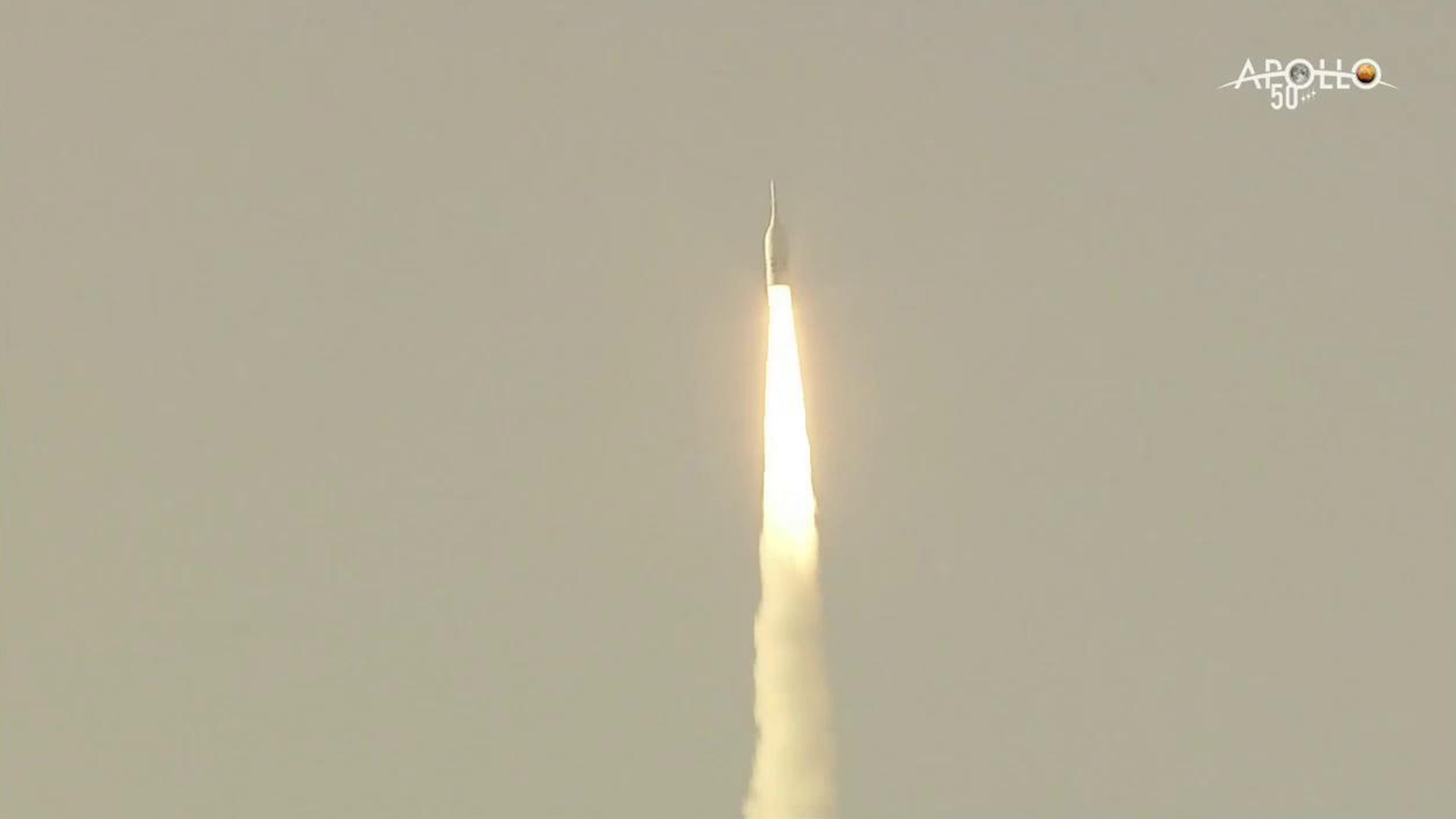Stay Up to Date
Submit your email address to receive the latest industry and Aerospace America news.
NASA and the 2024 moon mission faced an early test Tuesday — one it appears they have passed.
Early data from the test of the motors and flight software that would propel an Orion capsule and crew away from a failing launch vehicle shows the test was successful, NASA officials said.
“By all first accounts, it was a perfect test,” said Mark Kirasich, Orion program manager, on NASA Live minutes after the launch, which occurred at 7 a.m. EDT at Cape Canaveral Air Force Station in Florida.
This final test of the stack of three motors and protective aeroshell known as the launch abort system, or LAS for short, was a key milestone in NASA’s directive to return Americans to the moon by 2024. Lockheed Martin is the prime contractor for Orion.
During the three-minute test, the LAS and 10,000-kilogram Orion test capsule launched atop a modified Peacekeeper missile to about 9,500 meters (31,000 feet), at which time on-ground controllers triggered the abort sequence. The abort motor rocketed the capsule and LAS away from the booster, while the attitude control motor reoriented the capsule for landing. Finally, the jettison motor separated the capsule from the LAS, which blasted away in a cloud of white smoke as the capsule tumbled into the Atlantic Ocean, breaking apart upon impact and sinking.
“We couldn’t have asked for a better flight, better mission, better performance,” Don Reed, test project manager, told reporters in a post-launch conference, according to audio of the event on NASA’s website.
It will be a “couple months” before NASA has the full results from the test, Kirasich said, for which the agency will analyze data from the 890 sensors within the test capsule. That information was sent in real time to ground sites in Cape Canaveral as well to 12 onboard data recorders, which ejected before the test capsule hit the water and were recovered by NASA and Air Force teams this morning.
The “next big check mark” for the 2024 landing, Kirasich said, is the uncrewed Artemis-1 flight. Tentatively scheduled for late 2020, this would be the first flight of the Orion crew capsule and the Space Launch System, or SLS, rocket that is still in development.
About cat hofacker
Cat helps guide our coverage and keeps production of the print magazine on schedule. She became associate editor in 2021 after two years as our staff reporter. Cat joined us in 2019 after covering the 2018 congressional midterm elections as an intern for USA Today.
Related Posts
Stay Up to Date
Submit your email address to receive the latest industry and Aerospace America news.




